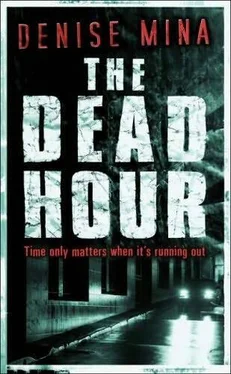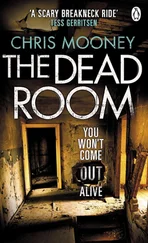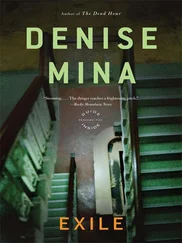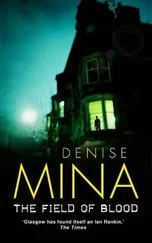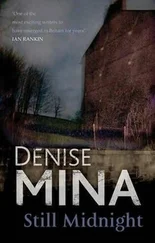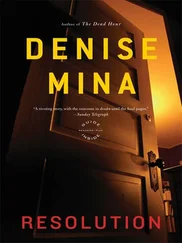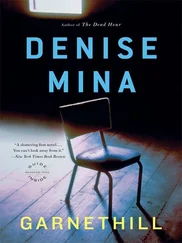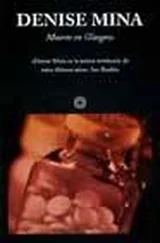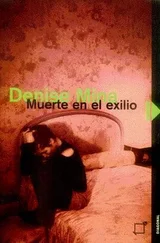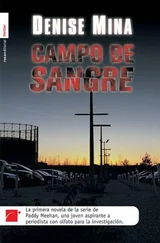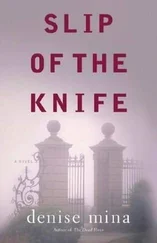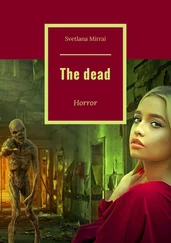“There’s a glass porch outside and it’s opposite a pub.” He didn’t want to hear what she was saying, Paddy could tell. “An old sort of Englishy pub. With a car park.”
“Right.” He nodded tetchily. “We’ll look into that. We will.”
“ Can you look into that?”
He gave her an imploring look. “We’ve got plenty to go on as it is. Let’s do what we can.”
“You’re not going to, are you?”
Before he had the chance to answer, a policeman next to one of the other cars shouted over that they were ready. Sullivan tried to stand up to answer him but his knees wouldn’t let him. He dropped back on his haunches and looked embarrassed. “We’re doing our best. We’re doing all we can.” He took his time rising slowly to his feet. “I’m driving.”
“Where are we going?”
“You need to pick Neilson out of a lineup. Are you game?”
“Oh, aye,” said Paddy. “I’m always game.”
Sullivan drove carefully back to Glasgow, following the car in front. Every so often Paddy could see the back of Paul Neilson’s well-groomed head in the other car. It was the guy she had met at Vhari Burnett’s door. She felt sure of it.
Listening to the noises through the door, Paddy waited, her stomach cramping with exhaustion, imagining the cause of the noises next door. Feet shuffled and men chatted casually, the sounds of men who didn’t know each other passing occasional comments. Two of them gurgled phlegmatic smoky laughs.
They were gathering men who looked a bit like Paul Neilson for the lineup and she, star witness, was waiting in a dull side room, walls painted industrial beige, a table and three chairs arranged against a wall. There was no window, just a bare lightbulb hanging overhead, throbbing sixty watts into the cupboard room.
She couldn’t help but think of Patrick Meehan. His lineup for the Rachel Ross murder was the trap he didn’t see coming. He may have been a career criminal but he still had a naive belief in the justice system and hadn’t anticipated the police tipping the witnesses off. Meehan had actually leaned over to one witness, a young girl, and told her not to be nervous, it was okay, she could say it was him, thinking she was his alibi. But in court she was called as a witness for the prosecution. Paddy remembered reading about the murder victim’s husband; old Abraham Ross was kept in the room the witnesses were taken into after they had picked Meehan out. No one ever proved it, but they must have talked to each other: who did you get? I picked the guy at the end of the line, short, plump, acne scarred. I got him too, same guy, at the end of the line, sandy hair.
Sullivan had stuck his neck out and desperately needed Paddy to pick out Neilson. Driving seven miles into town with the accused man riding in the car in front had to be bad practice: she saw Sullivan watching her in the mirror sometimes, when they stopped at lights or the car in front turned sharply, hoping she’d had a good look at Neilson. But Paddy wasn’t looking at the car in front. She could have picked him out with her eyes shut.
It was warm in the room. Burned dust had turned the lightbulb yellow and brown. It must have hung there for a long time. The room didn’t get used much. Eyewitnesses weren’t called for very often and then it was usually for robberies. She knew from the calls car that most murders were solved by arresting the blood-splattered spouse, holding the knife and standing over the body.
There was a sudden absence of movement outside the door; a reverent silence fell over the waiting men and feet shuffled into place. A final check was called for and she heard a shoulder brush against the waiting-room door.
It opened and she surprised herself by standing up suddenly and finding that her legs were weak with tension. The door slammed shut.
Slowly, the door swung open and an officious uniformed officer looked in. He frowned at her, looked her over, and asked if she was ready. She nodded, nervous and hot. Letting the door fall open, he gestured for her to come out into the room.
Five men were standing up against the wall. The officer walked her along the line, watched by a group in the corner that included Sullivan and a tired-looking lawyer man in a brown suit.
Paddy and the officer walked somberly down the line and she pretended to look carefully at each one, aware of the breathless hush from the audience behind her.
The men were all dressed the same but she could have picked Paul Neilson out just by looking at his clothes. His white shirt was crumpled, an expensive linen shirt, probably discarded when he went to bed and thrown on again when the police came to the door in the middle of the night. The rest of the men had freshly pressed shirts on, made of a hard-wearing nylon blend, police issue, ill fitting, cuffs hanging over their wrists. Some of them had dark hair, some black like Neilson’s.
She walked to the end of the line and turned back, walking to the middle. The men avoided eye contact, staring up at the back wall as if at a urinal, but Neilson still looked arrogant, a smug twist at the side of his mouth, weight resting on one foot. His haircut looked expensive.
Paddy stood in front of him, showing him she wasn’t scared. He looked back at her. Behind him the lawyer coughed anxiously. She stepped toward Neilson, examining him, looking at the hands that had held Vhari Burnett’s door shut, at the neck that was speckled with Vhari’s blood. He looked down and smiled warmly.
“That’s him,” she said.
Paul Neilson grinned, dark brown eyes twinkling, crow’s feet spreading across his cheeks. It was as if she had told him a great joke, flattered him on his choice of clothes, asked him to buy her a drink.
The officer pointed at Neilson for confirmation. “Number two?”
Paddy pointed at him, her fingertip three inches from his chest. “This one, number two.”
Neilson’s grin spread until his eyes were almost shut.
Sullivan stepped forward. “Okay,” he said. He took her elbow and steered her to a far door. “That’s it for now.”
Ramage had called the station looking for her and Sullivan allowed her to make a phone call from his desk.
She told him what had happened in detail, leaving out the fifty-quid note because that would come out at the trial and by then she would be bathed in glory. Sullivan had dodged every mention of Knox. She guessed that he wasn’t senior enough to go after him, so she didn’t mention him to Ramage. They couldn’t report on Neilson yet, either, and would have to wait for the trial, but Ramage promised her a front page on the scene at the cottage, the lady in peril and the Daily News ’s own intrepid reporter. The story would include details of Kate’s attack and the body in the garden, and because Lafferty was dead, they could defame him as much as they wanted.
She was to come in and write it up for the Saturday edition and then she could go home. He sounded pleased with her, a little in awe at the story of the cottage, and she played up Sean’s part in case they found out that their new driver didn’t have a license.
“He was brilliant. Saved the day. I couldn’t have done it without him.”
“Well, you can keep the hotel room until tomorrow, if you want to go out and get pissed tonight.”
Paddy thought of Mary Ann leaving for France in the morning. “Ah, thanks, Boss, I think I’ll just go home after.”
“Excellent,” he said firmly. She felt he appreciated her being cheap almost as much as the story.
She hung up and found Sullivan standing across the room, sadly chewing a hangnail, as if he’d just heard Santa wasn’t real. He caught her eye and looked away.
Читать дальше
